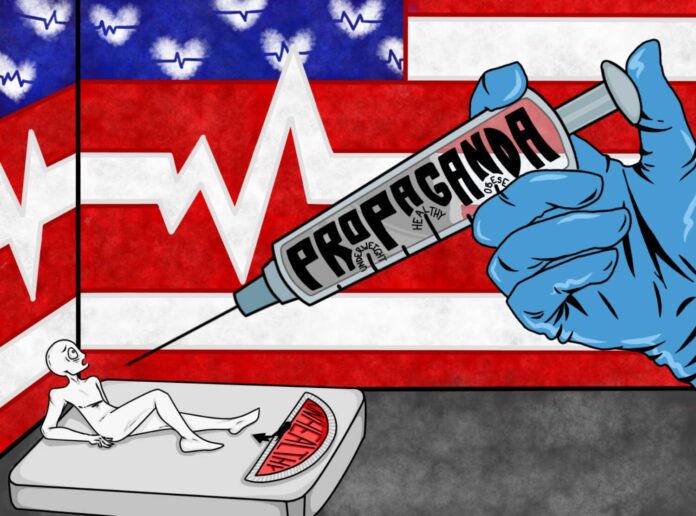It’s no exaggeration to say that the second Trump administration may be the most transformative regime America has ever experienced. From gutting federal government infrastructure to mobilizing the largest mass-deportation effort in American history, President Trump and his allies have made it clear that they will do everything in their power to usher in their so-called “Golden Age of America” without delay.
In just over eight months of leadership, the Trump administration has produced a deluge of unprecedented statements and decisions. As mainstream media floods with stories of a proposed “Trump Gaza” and the ill-fated Alligator Alcatraz, the casual observer may be inclined to tune out of a political news cycle that appears more reminiscent of an SNL episode than reality itself.
As Americans are inundated by one inconceivable headline after another, many pertinent issues have managed to evade the spotlight — including the complete restructuring of American health infrastructure. What has managed to capture the limelight, however, is the movement that it stems from: Make America Healthy Again.
If you’ve kept an eye on the American political landscape over the past couple of years, you’ve likely heard of Robert F. Kennedy, Jr. (RFK). As one would expect of a member of the Kennedy dynasty, RFK is no stranger to the political realm. He’s also responsible for a treasure trove of truly bizarre headlines, including tales of his bout with brain worms and an (unprompted) admission to dumping a dead bear in a Central Park bush.
If RFK were a man merely defined by his eccentricities, he would undoubtedly be regarded as one of the most entertaining political novelties in America. Unfortunately, he happens to be in charge of the Department of Health and Human Services (HHS).
The fact that Kennedy is in this position to begin with is something of a miracle. After a failed run at the presidency in 2024, RFK’s political career appeared to be in limbo. A lifelong Democrat prior to 2023, the newly-independent Kennedy found himself attempting to placate both Kamala Harris and Donald Trump, promising support in exchange for a role in either’s administration. Ultimately, the Trump campaign accepted the beleaguered Kennedy, vowing to give him the position needed to “Make America Healthy Again” in the event of a Trump victory.
Following Trump’s inauguration this past January, RFK has wasted no time implementing his MAHA agenda. Just one week after being sworn in, Kennedy fired over 5,000 federal health workers, halted the promotion of seasonal flu vaccines and established a MAHA commission dedicated to researching the causes of chronic childhood diseases. In addition to a complete restructuring of the HHS and Center for Disease Control (CDC), Kennedy has vowed to find the cause of autism by September (note that no cause has been determined as of Sept. 4) and has proposed the creation of a federal registry that tracks autistic Americans in order to study the condition.
Arguably the most notable story to arise from the MAHA regime has been its assault on American vaccination standards. Last May, Kennedy’s commission released a report regarding topics it deemed to be “potential drivers behind the rise in childhood chronic disease that present the clearest opportunities for progress.” Listed amongst these was “over-medicalization,” a situation that arose when children were supposedly receiving excessive prescriptions and vaccines at a young age. Following the release of the findings, the MAHA report was panned by health professionals for misinterpreting (and at times, entirely fabricating) many of its sources. The HHS defended the report, however, citing these issues as “minor citation and formatting errors.”
Despite the contention surrounding the MAHA report and immense scrutiny of Kennedy’s HHS tenure overall, the effects of the administration on the national health landscape have been profound. In the wake of the FDA limiting the administration of the most recent COVID-19 vaccine, CVS has moved to restrict the vaccine’s availability, limiting access to patients with a prescription in 13 states and completely revoking access in three others. In addition to pharmaceutical restrictions, states such as Texas have made it easier for vaccine exemptions to be requested. In Florida, vaccine mandates are on the verge of being eliminated entirely. Some states have formed coalitions in an attempt to protect vaccine access, but at the federal level, the future of American medical standards appears marred with uncertainty.
Ultimately, Kennedy’s tenure as head of the CDC serves as a stark reminder of just how malleable the nation’s health standards truly are. Just five years ago, vaccines were at the forefront of the fight against COVID-19 and were considered infallible pillars of American medical infrastructure. Today, the federal government treats the word “vaccine” as though it’s contaminated. It’s a testament to the tragic nature of governmental change — systems that took generations to create can be eradicated in an instant.
Kennedy and his MAHA allies have continued to fiercely defend their positions on American health architecture, and their attempts to redefine the nation’s medical landscape don’t seem to be stopping anytime soon. The die has been cast, and as the well-being of millions of Americans hangs in the balance, one has to wonder if the gambit to Make America Healthy Again has only sickened us further.
Contact Mac Ribner at ribner@oxy.edu
![]()




































Trvth. Billions must eat.
Excellent